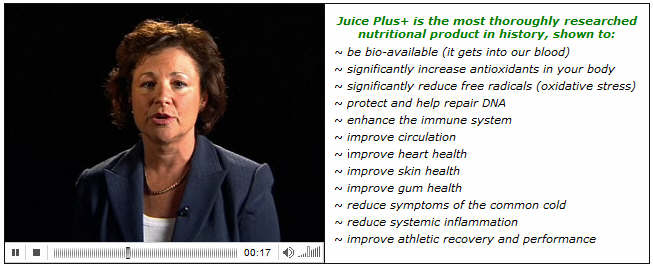|
Heart attack risk lower among women with high anthocyanin intake
 January 18, 2013. The
current issue of
Circulation: Journal of
the American Heart Association reported the finding of a decrease in
the risk of myocardial infarction in women with a high intake of anthocyanins—flavonoids
that occur in significant amounts in such plant foods as
blueberries and
strawberries. "We have shown that even at an early age, eating more of these
fruits may reduce risk of a heart attack later in life," remarked lead author Aedín Cassidy, PhD, who heads the Department of Nutrition at Norwich Medical
School of the University of East Anglia in England. January 18, 2013. The
current issue of
Circulation: Journal of
the American Heart Association reported the finding of a decrease in
the risk of myocardial infarction in women with a high intake of anthocyanins—flavonoids
that occur in significant amounts in such plant foods as
blueberries and
strawberries. "We have shown that even at an early age, eating more of these
fruits may reduce risk of a heart attack later in life," remarked lead author Aedín Cassidy, PhD, who heads the Department of Nutrition at Norwich Medical
School of the University of East Anglia in England.
The
study included 93,600 women between the ages of 25 to 42 upon enrollment in the
Nurses' Health Study II in 1989. Dietary questionnaires completed every four
years beginning in 1991 provided information on the intake of anthocyanins,
which include cyanidin, delphinidin, malvidin, pelargonidin, petunidin and
peonidin. The participants were followed for 18 years, during which 405 heart
attacks occurred.
Anthocyanin intake ranged from 2 to 35 milligrams per day. Among women whose
intake of anthocyanins was among the top one-fifth of subjects, there was a 32
percent lower risk of heart attack in comparison with those whose intake was
among the lowest fifth, and when those in the top one-tenth were compared with
the lowest tenth, the risk was 47 percent lower. For each 15 milligram daily
increase in anthocyanin intake, myocardial infarction risk was lowered by 17
percent.
When
the researchers analyzed the intake of dietary sources of anthocyanin
(blueberries and strawberries), participants who consumed at least three
servings per week had a 34 percent lower heart attack risk compared to those who
seldom consumed them. Onions consumed at least five times per week were also
protective.
"Our
findings suggest that bioactive compounds present in red and blue fruits and
vegetables commonly consumed in the habitual diet may be associated with a
reduced risk of myocardial infarction in young and middle-aged women," the
authors conclude. " Further prospective studies, including studies with
biomarkers of coronary heart disease risk to elucidate mechanisms, are needed to
confirm these associations. Randomized trials focusing on commonly consumed
anthocyanin-rich foods are also needed to examine dose-response effects and to
be of long-enough duration to assess clinically relevant end points."
"Blueberries and
strawberries can easily be incorporated into what women eat
every week," noted senior author Eric Rimm, ScD, who is an Associate Professor
of Nutrition and Epidemiology at the Harvard School of Public Health. "This
simple dietary change could have a significant impact on prevention efforts."
Given
the news above, it's no surprise that Juice Plus+ is proven to improve heart health.
Juice Plus+
Vineyard Blend contains 9 berries (many containing anthocyanins);
together with
Juice Plus+ Orchard & Garden Blends, it forms the perfect
partnership for your health.
You can learn more about
Juice Plus+ and the medical research behind it
here.
Why not choose to make your heart healthier every day?
You can learn more by watching Dr. Sachs' video below.
 |